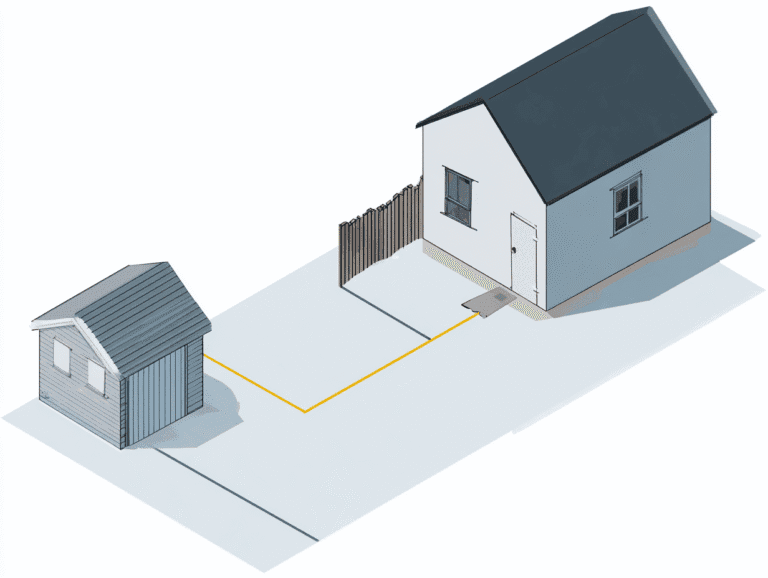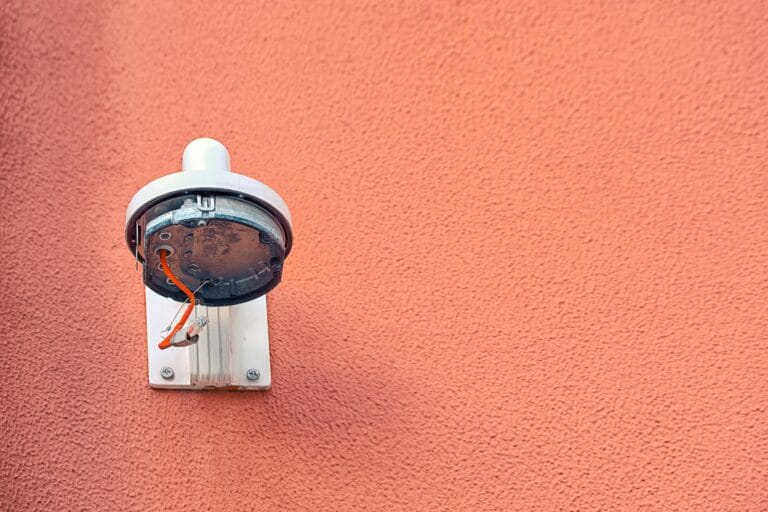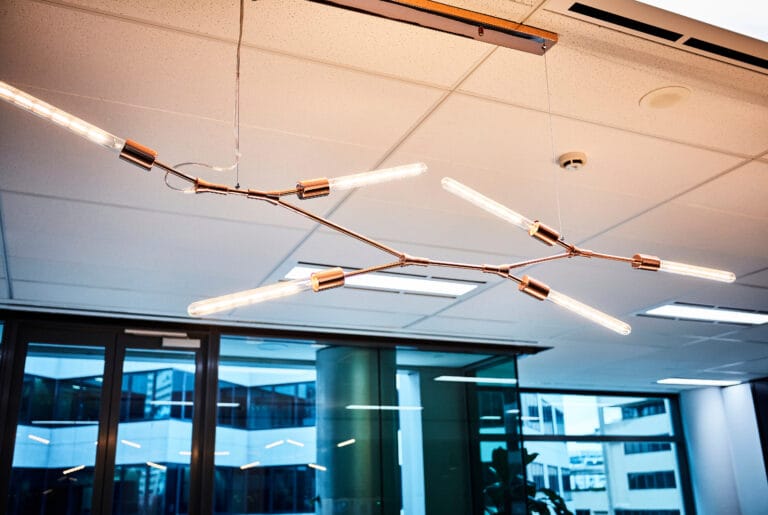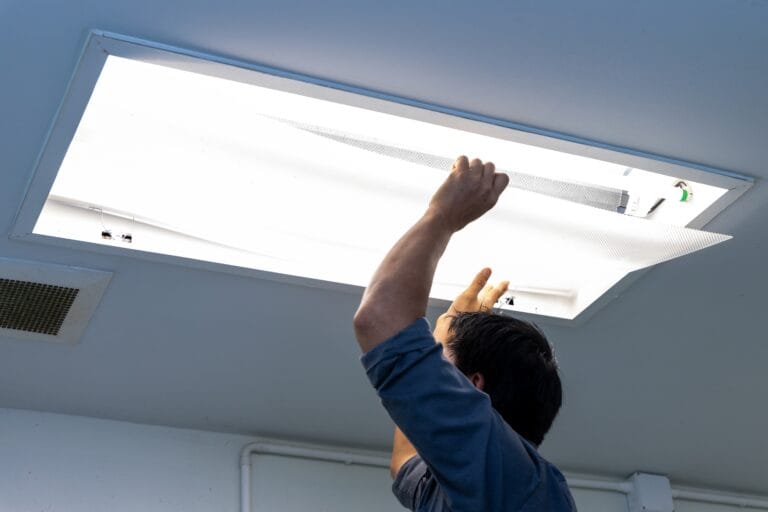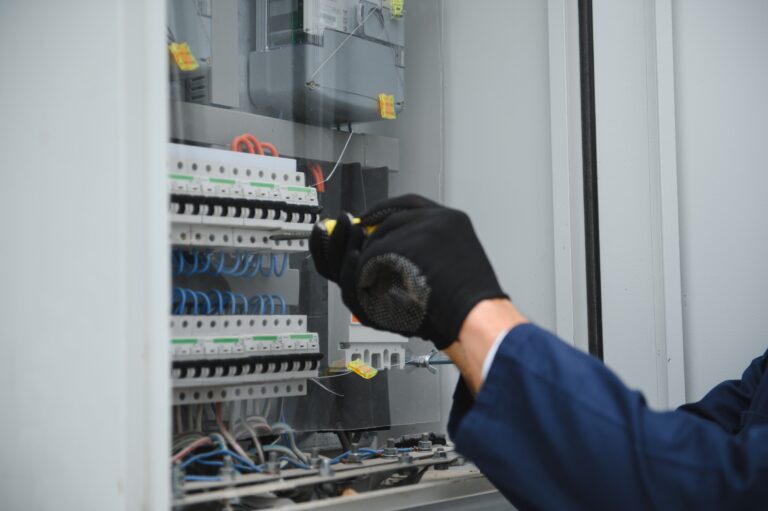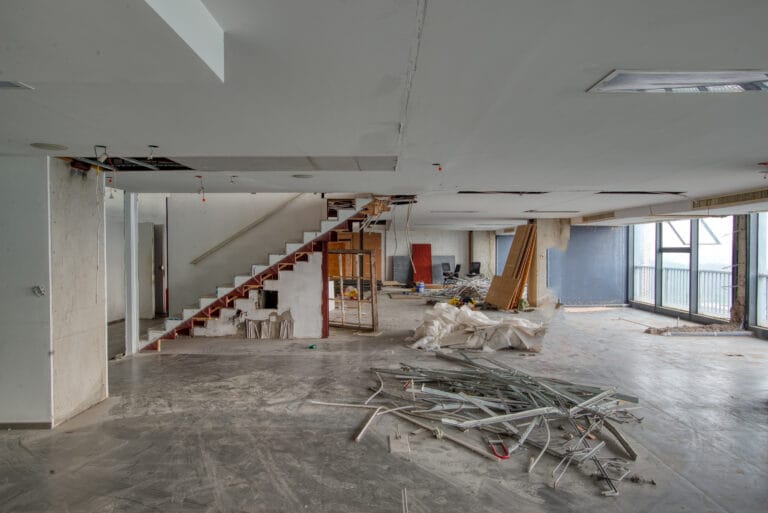When it comes to the cost to rewire a residential house in Melbourne, safety is non-negotiable. Outdated wiring puts your family, tenants, and property at serious risk—electrical faults are a leading cause of residential fires across Australia. Upgrading your home’s electrical system isn’t just about peace of mind; it’s about meeting strict Australian standards and compliance regulations that protect everyone under your roof.

Cost Overview for Rewiring by Bedroom Size
Understanding the typical costs associated with rewiring a house is crucial for effective budgeting. Here’s a simple summary of the average rewiring costs based on house size:
| House Size Average | Cost Range |
| 2-bedroom | $3,000 – $8,000 |
| 3-bedroom | $3,000 – $10,000 |
| 4-bedroom | $7,000 – $15,000 |
These cost ranges incorporate several essential components:
Melbourne homeowners benefit from relatively low electrician hourly rates, averaging around $35 per hour, which is more affordable compared to other major cities. This lower rate makes it less expensive to hire qualified professionals for extensive rewiring projects.
Whether you’re considering the cost to rewire a 2 bedroom house or assessing the average cost of rewiring a 2 bedroom house versus larger properties like 3 or 4 bedrooms, knowing these figures helps in making informed decisions.
Key Factors Affecting Rewiring Costs in Melbourne
House Age
Older homes, typically those over 30 years old, often require comprehensive rewiring. These properties usually have outdated wiring materials such as lead or rubber insulation that degrade over time. Modern safety switches are often absent, necessitating a full upgrade to meet current safety regulations.
House Size
The size of your home significantly impacts the rewiring cost. Larger homes naturally require more wiring and increased labor time. For instance, a two-bedroom house may fall within the $3,000 – $8,000 range, while a four-bedroom house could range from $7,000 to $15,000.
Wall Type
The type of walls in your home plays a crucial role in determining labor complexity and costs:
- Brick Walls: More challenging and time-consuming to work with due to their solid structure.
- Weatherboard or Plasterboard Walls: Easier to handle, which generally reduces labor time and costs.
Accessibility
Ease of access to existing wiring can affect both the complexity and duration of the job. Homes with easily accessible crawl spaces or attics allow electricians to work more efficiently, potentially reducing labor costs.
Understanding these factors helps homeowners estimate the approximate cost to rewire a house accurately. The keyword here is preparation; knowing these variables can aid in budgeting effectively for this essential upgrade. Proper planning ensures compliance with modern safety standards while optimizing the overall investment in your property.
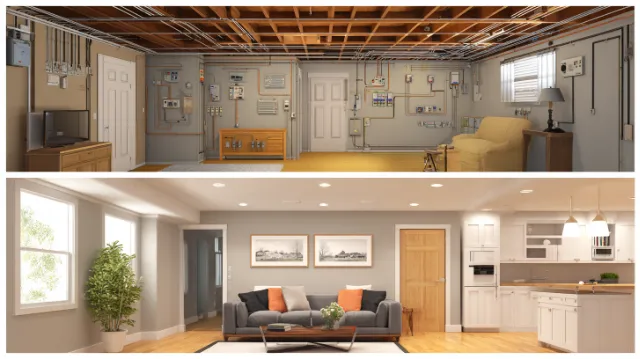
Old House vs New House Rewiring Costs Explained in Melbourne
Rewiring an old house in Melbourne brings unique challenges and additional expenses that don’t apply to new builds or recent renovations. Homeowners searching for the cost to rewire a residential house, price to rewire a house, or the average cost to rewire a house will see clear differences based on property age and condition.
Rewiring Old Houses in Melbourne
Older homes—especially those built before the 1990s—often have wiring that’s not just out of date, but potentially hazardous. Materials like lead-sheathed cables or rubber insulation degrade over decades, increasing the risk of electrical faults and fire.
Key cost factors for rewiring old houses:
A typical cost rewire house project on an older property can land toward the higher end of published price ranges due to these complexities.
New Build Wiring Costs & Renovation Electrical Upgrades
New builds—or homes recently gut-renovated—present a much simpler scenario:
Strategic Timing During Renovations
Planning your renovation electrical upgrades during major works delivers maximum value. Electricians work alongside builders when walls are open—cutting both time and disruption while ensuring seamless compliance with Australian standards. This coordination consistently lowers the cost to re wire a house compared to piecemeal updates after renovations finish.
Old or new, every Melbourne home gains security, efficiency, and long-term savings by making rewiring a central part of any significant property update.
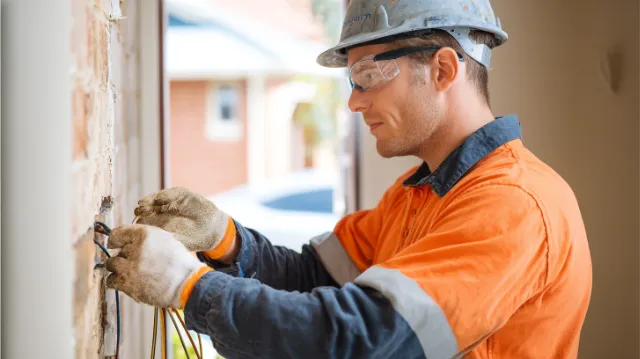
Melbourne Suburb Considerations Impacting Rewiring Prices
Rewiring costs in Melbourne aren’t just about the number of bedrooms or the age of your home. Where you live plays a direct role in your final quote.
Inner Melbourne Electrician Costs
- Higher hourly rates: Electrician labor rates run higher in inner suburbs, commonly due to factors like limited parking, permit requirements, and high demand for trades.
- Access challenges: Tightly packed homes, heritage-listed buildings, or apartment complexes often bring unique access issues, which can add hours to a job.
- Example: Carlton, Fitzroy, and Southbank homeowners may see rates at the top end of the Melbourne suburb electrical rates spectrum—sometimes $80–$110 per hour depending on demand and parking conditions.
Outer Suburbs Rewiring Prices
- Lower average hourly rates: In outer areas like Werribee, Dandenong, or Craigieburn, rewiring prices tend to be more competitive—hourly rates are often closer to $65–$85.
- Travel fees: While base labor may cost less, travel surcharges can apply if your property is far from the electrician’s usual service area or difficult to access via main roads.
- Newer housing stock: Many outer suburbs feature newer builds with easier access to cabling and switchboards, helping keep total rewiring costs lower.
Complexity from Older Properties by Suburb
- Heritage homes and established suburbs: Areas with older housing stock—such as Hawthorn, Ascot Vale, or St Kilda—can present greater complexity. Degraded wiring behind thick brickwork or original timber walls often means more labor time and specialist equipment.
- Building structure matters: Victorian-era terraces or Federation homes require careful planning to protect original features while meeting modern safety standards.
Location matters. Higher demand and access difficulties in inner Melbourne push up electrician costs; outer suburbs may offer savings but watch for travel fees.
Understanding these local factors helps you budget accurately when comparing quotes for rewiring projects across Melbourne’s diverse suburbs.
Breakdown of Typical Rewiring Cost Components in Melbourne
Understanding the distinct elements that make up the average cost to rewire a home in Melbourne allows homeowners to budget accurately and avoid hidden surprises. Each major component reflects both material quality and professional expertise.
Wiring Material Costs Melbourne
- Copper wiring remains the industry standard for safety, durability, and compliance. Expect wiring material costs in Melbourne for an average-sized residence to land between $600 and $650.
- This figure covers high-quality copper cabling designed for modern load requirements and future-proofing your electrical system.
- Homes with larger footprints, multiple stories, or additional circuits (such as for electric vehicle charging) may see proportionally higher material costs.
Electrician Labor Rates Victoria
- Labor is the largest variable in any rewiring project. In Victoria, electrician labor rates typically start at $35 per hour but can climb as high as $110 per hour depending on experience, certification level, and complexity of the job.
- Most rewiring projects settle closer to an average of $65–$70 per hour.
- The total hours required directly correlate with house size, wall structure (brick vs plaster), accessibility of existing wiring, and any bespoke requirements like smart home integration or extra power points.
For a three-bedroom weatherboard house with good access, labor might total 40–60 hours; brick homes or older properties with difficult access often require longer.
Switchboard Replacement Price
- Upgrading an outdated switchboard is non-negotiable for safety and compliance. The typical switchboard replacement price ranges from $700 to $1,000, including basic cabling work.
- Situations demanding extensive cable rerouting or a brand-new switchboard installation (for major upgrades or heavy appliance loads) commonly push total costs into the $2,000–$3,000 range.
- Modern switchboards include mandatory safety switches (RCDs) as part of current Australian standards—critical for fire prevention and personal protection.
Every Melbourne rewiring quote should detail these components separately so you understand where your investment is going and how each aspect impacts your long-term electrical safety. Selecting quality materials and experienced professionals ensures all aspects meet rigorous Australian standards from day one.
The process doesn’t end with component selection; understanding timelines and what to expect during installation sets realistic expectations for homeowners.
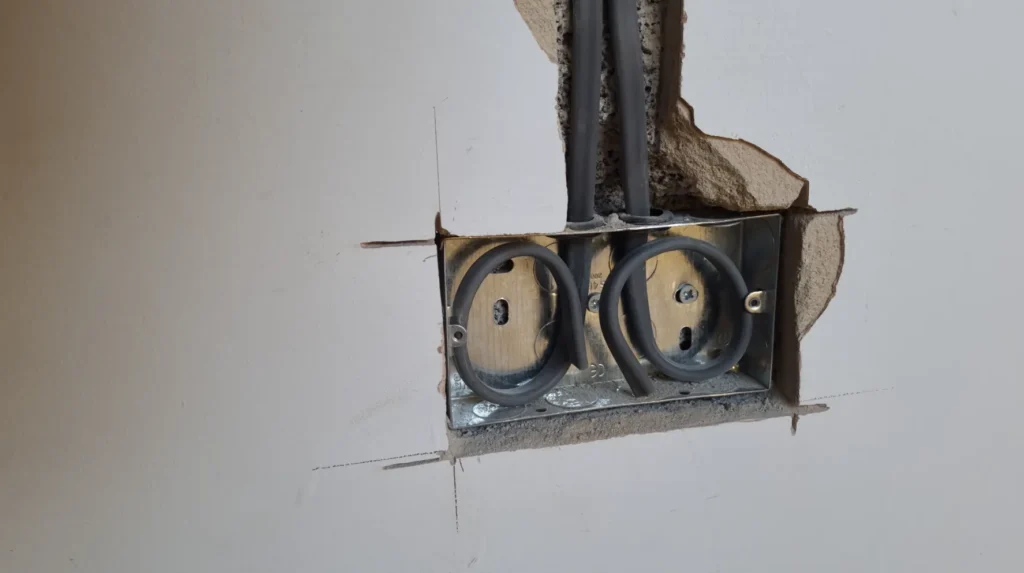
Benefits of Rewiring Your Home in Melbourne in 2025
Upgrading your electrical system offers more than just new wires behind the walls. It delivers lasting peace of mind, a safer living environment, and real value growth for your Melbourne property.
1. Enhanced Safety: Stop Hazards Before They Start
Old or faulty wiring is one of the most common causes of residential fires in Australia, with electrical faults responsible for around 40% of house fire incidents nationally. Rewiring eliminates brittle insulation, exposed cables, and outdated fuse boxes that silently increase risk every day. Modern safety switches and circuit breakers instantly cut power if a fault occurs, protecting your family and property from shock or fire.
“Home safety electrical rewiring Australia†isn’t just a buzzword—it’s a core reason why families invest in certified rewiring by licensed electricians.
2. Compliance with Today’s Australian Standards
Electrical regulations have advanced rapidly over the past decades. Homes built before 1990 typically lack many features now required under AS/NZS 3000 wiring rules—such as RCDs (residual current devices), proper earthing, and adequate circuit segregation for appliances. A professional rewiring job ensures your home meets every modern compliance benchmark, safeguarding you from legal liability and insurance claim rejections should an incident occur.
3. Property Value Increase: Make Your Home Stand Out
A fully-rewired home holds strong appeal for discerning buyers and investors. Evidence shows properties marketed as “recently rewired†often fetch higher sale prices due to buyer confidence in long-term safety and reduced maintenance costs. Property value increase rewired homes is not just an agent’s promise—it’s backed by buyer demand for secure, future-proofed dwellings across Melbourne suburbs.
Here are some ways how rewiring can increase your property’s value:
- Immediate appeal: Prospective buyers see fewer renovation headaches down the line.
- Insurance benefits: New wiring can lower premiums or unlock broader coverage options.
- Marketability: Compliance certificates and visible switchboard upgrades add instant credibility during sales negotiations.
A rewired home means less worry about hidden dangers—and more certainty when it comes time to sell or insure your biggest asset. To ensure this process is handled with care and expertise, it’s advisable to seek help from a residential electrician.
How Long Does a Typical Rewiring Job Take? What To Expect During the Process in Melbourne?
Understanding how long rewiring will take for houses in Melbourne is important for managing the project smoothly and staying relaxed. For most small to medium-sized homes, the average time it takes to upgrade the electrical system ranges from three days to one week. Factors such as the size of the house, the structure of the walls, and how easy it is to access the existing wiring directly influence these timeframes.
Typical Timeframes by Property Size:
2-bedroom or smaller: Expect 2–4 days if access is straightforward and disruption is minimal.
3–4 bedrooms: Allow 5–7 days, particularly if there are brick walls or complex layouts involved.
Larger or multi-storey homes may require over a week, especially if intricate switchboard upgrades and hidden cabling are necessary.
What Disruptions to Expect
During rewiring works, some interruption to daily routines is unavoidable:
Temporary Power Outages: Power will be switched off to various circuits at different stages. You may have partial or complete outages lasting hours at a time.
Access Requirements: Electricians need clear entry to every room—behind furniture, inside wardrobes, under floors, and above ceilings. Prepping your home by moving large items in advance keeps the project running on schedule.
Noise & Dust: Drilling into walls and ceilings means some construction noise and light debris; dust sheets and protective covers help reduce mess.
“Professional teams keep you informed each step of the way—expect daily updates on progress and clear timelines for power interruptions.â€
Planning Ahead for Minimal Stress
Coordinating your rewiring with other renovations can save both time and money. If you’re planning new plastering, painting, or flooring, book your electrical upgrades first. This sequencing ensures electricians don’t need to cut into freshly finished surfaces.
A well-planned approach means less disruption—and guarantees your project stays on track from start to finish. Here are some additional tips on what to expect and how to prepare a home for electrical rewiring:
Schedule your rewiring well in advance during peak renovation seasons
Notify all household members about expected power loss windows
Arrange alternative accommodations for work-from-home needs or young children if necessary
Hiring the Right Electrician for Your Home Rewiring Project in Melbourne
Licensed Electricians and Insurance Coverage
When it comes to rewiring your home, it’s crucial to hire licensed electricians with proper insurance coverage. In Melbourne, all electrical work must be carried out by a professional who holds a valid license issued by Energy Safe Victoria. This ensures that the electrician has the necessary training and expertise to perform the job safely and effectively.
Obtaining Firm Quotes
To avoid unexpected costs, always obtain firm quotes based on detailed job descriptions. Clearly outline your requirements, including the number of rooms, wall types, and accessibility issues. This allows electricians to provide accurate estimates and prevents misunderstandings later on.
Tip: Request itemized quotes to see a breakdown of costs for materials, labor, switchboard replacements, etc.
Checking References and Compliance Certificates
Before making your final decision, check references from previous clients. Reputable electricians should have a list of satisfied customers who can vouch for their work quality and professionalism. Additionally, ensure that the electrician will provide a compliance certificate post-work. This certificate confirms that all electrical work meets current safety standards as required by law.
Legal Implications of DIY Rewiring
DIY rewiring is not only dangerous but also illegal in Australia without proper qualifications. Attempting to do so can result in severe penalties and voids any home insurance policies in case of an electrical fire or accident.
Remember: Always leave electrical work to professionals to guarantee safety and compliance.
By following these guidelines, you can ensure that your house rewiring project in Melbourne is completed safely, efficiently, and up to code.


